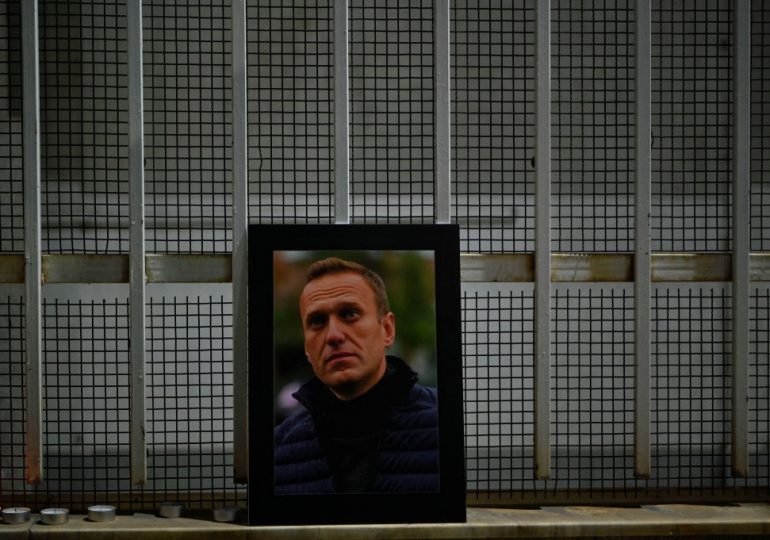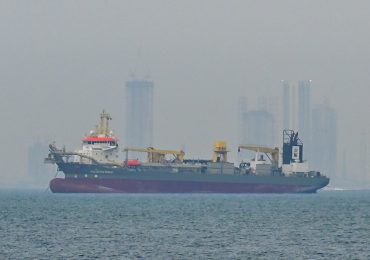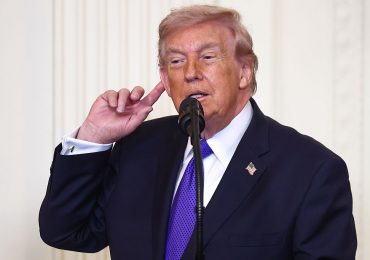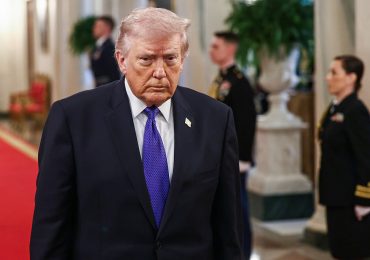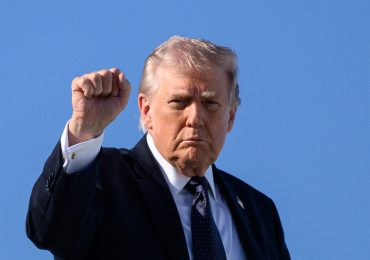When the now-martyred Alexei Navalny was a sarcastically witty student in this first author’s 2010 Yale class, he asked how my lessons on charismatic leadership apply to challenging collective cowardice. Winston Churchill’s 1938 book, While England Slept, presciently sounded the alarm on how Nazi Germany built up its war machine under the nose of England’s failed appeasement policies.
[time-brightcove not-tgx=”true”]
Decades later, Churchill’s clarion call is sadly relevant once more. But this time it is America who is asleep as Russian President Vladimir Putin seizes the moment. Last week, and just in time for the two-year anniversary of Putin’s full-scale invasion of Ukraine, Navalny died while in a prison colony above the Arctic circle. (“We don’t know exactly what happened, but there is no doubt that the death of Nalvany was a consequence of something that Putin and his thugs did,” President Joe Biden said at the White House.) Russian forces then captured the Ukrainian town of Avdiivka, Putin’s most significant territorial gains since the earliest days of the war.
Putin is going on the offensive—and how could he not think that the U.S. is asleep. The GOP-led House of Representatives has stalled $60 billion of military aid for Ukraine for months; Ukraine is running perilously short on ammunition, outgunned by Russia and at danger of being completely overrun; and leading MAGA-world voices are practically openly supporting Putin, with Donald Trump saying he would encourage Russia to do “whatever the hell they want” while Europe publicly prepares contingency plans should the spigot of U.S. support dry up.
Testing the West’s limits
Putin critics have previously met tragic fates at times of Western weakness. The murder of former Deputy Prime Minister and anti-Crimean invasion opposition leader Boris Nemtsov took place when the West waffled in its response to Putin’s annexation of Crimea in 2014; and the murder of human rights activists Sergei Magnitsky, Natalia Estemirova, Anastasia Baburova, and Stanislav Markelov took place in 2009 amid the much-ballyhooed “Russia reset.”
Thousands have turned out across Russia to express their grief over Navalny’s death, with hundreds of arrests in response. But by and large, most Russians are staying quiet. As Russian chess grandmaster and democracy advocate Garry Kasparov asserts, “Navalny was a man of optimism and action in a country of nihilism and inaction… Russians who failed to match Alexei’s courage and end Putin’s dictatorship and war can’t escape responsibility.”
That’s a shame when you consider how activism can affect real change. The former Polish President and dissident Lech Walesa told this first author this past fall how the image of packed sports stadiums in the 1980s saved him from a worse fate than his multiple arrests. The anti-apartheid activist Bishop Desmond Tutu also explained in 1991 how his unrelenting global reach in the late 1980s helped garner the economic pressure needed to release the heroic Nelson Mandela from 27 years of imprisonment to lead South Africa, and then end the horror of apartheid.
Navalny’s legacy carries on
As Anne Applebaum puts it, “even behind bars, Navalny was a real threat to Putin, because he was living proof that courage is possible, that truth exists, that Russia could be a different kind of country.” Although Navalny was Putin’s most ferocious domestic critic, his mission lives on through the millions he inspired with his torch of courage.
One of those torch bearers is Yulia Navalnaya, who has courageously assumed her husband’s public voice for the first time in the days since his murder.
There is precedent. Corazon Aquino in the Philippines and Violetta Chamorro in Nicaragua both lacked conventional political backgrounds, but stepped into the spotlight and led brilliantly and boldly with the untimely assassination of their prominent popular spouses. They shared the inspiring mission of their partners better than any, fortifying both massive public support through that unique legitimacy, continuity, and confidence from vital international allies.
Naturally, passing the baton to a trusted spouse is not an easy path to victory either. Sviatlana Tsikhanouskaya emerged as the triumphant opposition leader to the brutal Belarus dictator Aleksandr Lukashenko after her husband, Sergei Tikhanovsky, was imprisoned in the 2020 presidential elections. Tsikhanouskaya was allowed to run as a candidate because Lukashenko never believed a woman could mobilize significant support. Her platform of constitutional reform promoting free elections was so successful that she was forced into exile and later tried in absentia by the Belarusian government last year and sentenced to 15 years in prison.
Nevertheless, Navalnaya represents hope for a different Russia. She declared in a video message that “I want to live in a free Russia, I want to build a free Russia, I will continue the work of Alexei. I urge you to stand next to me, I ask you to share the rage with me. Rage, anger, hatred towards those who dared to kill our future.”
But the West can do more. We have documented how Putin’s economy is collapsing, under the weight of economic boycotts from over 1,000 global businesses, surviving only through the cannibalizing of state-controlled firms. With even tighter sanctions and renewed military support for Ukraine, the global community can fortify Navalnaya’s leadership and kindle hope for a better future for Russia.
Leave a comment
